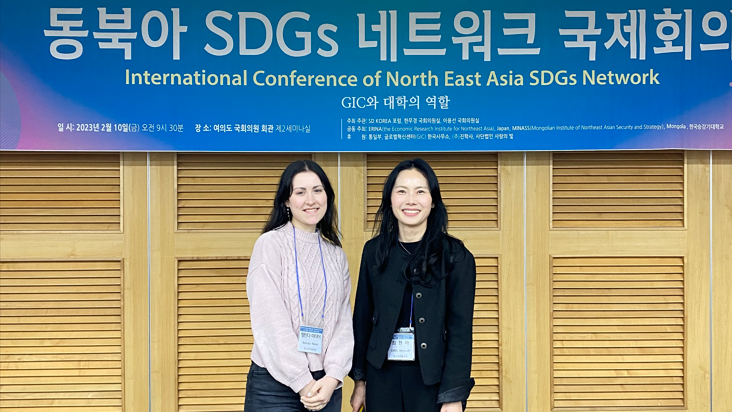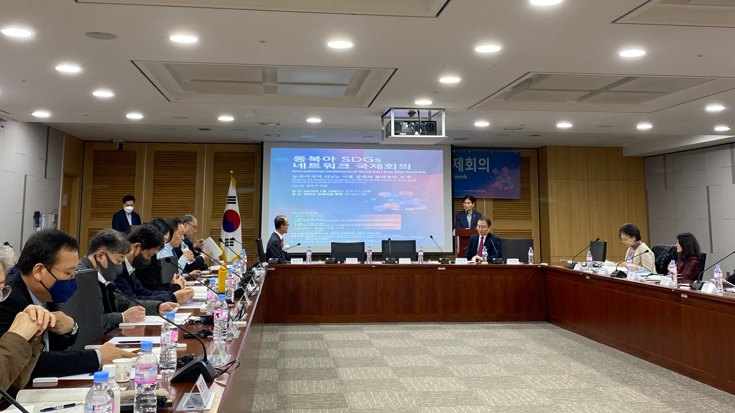Event
Participation of HSF in the second “International Conference of North East Asia SDGs Network”

On the 10th of February, the new research intern at HSF, Belinda Maier, accompanied the Senior Researcher Hyun Ah Choi to the second “International Conference of North East Asia SDGs Network”, an event hosted and organized by the SD Korea Forum in partnership with two Members of the National Assembly, Mu Kyung Han and Yong Sun Lee. The conference was co-hosted by the Economic Research Institute for Northeast Asia (ERINA) in Japan, the Mongolian Institute of Northeast Asian Security and Strategy (MINASS) as well as the Korea Lift College. HSF attended this event in-person at the National Assembly Building in Seoul. In the opening ceremony, Kyung Eui Yoo, Chairman of the SD Korea Forum, Yong Sun Lee and Ki Woong Kim, Vice Minister of the Ministry of Unification, gave individual speeches in which they expressed the importance of global cooperation when implementing the SDGs in the current society. Thus, the main question to be answered at the conference was how to get the DPRK to also participate in this regard.

The conference was separated into three sessions. The topic of the first two sessions was the current status of implementation of the SDGs in Northeast Asian countries and their position on cooperation with SDGs in Northeast Asia. Representatives of each country were given the opportunity to present their region's current handling of the SDGs. While the subject of the first session was the implementation of the SDGs in Mongolia, Japan, and Russia, the second session focused on the implementation of the SDGs in South Korea, China, and in the DPRK. After each session, three pre-chosen debaters were given the chance to comment on the three presentations that were given in order to clarify any outstanding issues in this regard. The representative of HSF at that conference, Hyun Ah Choi, was one of the debaters in the first session. She explained that SDG 13, 14, 15, 16, and 17 are the goals that the work of HSF Korea is mainly focusing on. She also pointed out that SDG 2 and 6 are the goals that the DPRK is currently struggling with the most, and that they could therefore open doors for cooperation with the DPRK. Since the Russian Embassy is still located in Pyongyang, she supposed Russia to have the best access to information about institutes in the DPRK that would be willing to cooperate in order to build a stable partnership. In the last session, another presentation was given, which was about the Role of the Industry-Academic Cooperation Foundation and its Linkage with the GIC (Global Innovation Center). After the presentation, every participant got the chance to express their opinion on the issues that have been raised throughout the conference.
In the closing ceremony, Kang Taeg Lim, Executive Director of the SD Korea Forum, summarized the knowledge shared by the participants of the conference. He has drawn the conclusion that the SDGs offer countries many opportunities for improvement and growth and that each country should approach them differently as each faces different challenges and have different capacities. He also noted that the SDGs related to environmental issues have the greatest potential for attracting the interest of the DPRK in participating in the implementation of the SDGs within Northeast Asia.
